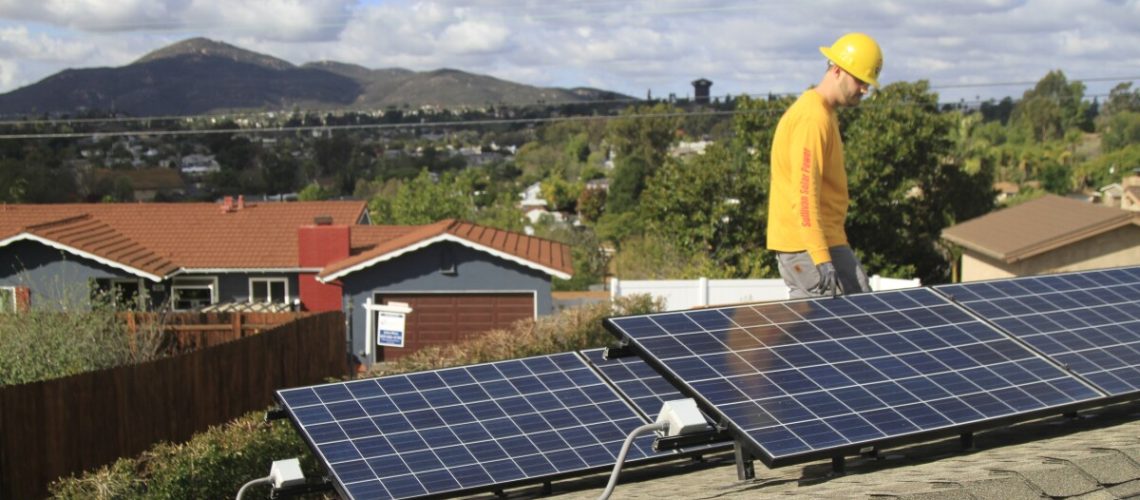To the editor: The utility companies claim that rooftop solar is unfair because it supposedly puts the financial burden of net energy metering onto the poor. Since when have the utilities cared about the poor or climate justice? Only since rooftop solar threatened their dividend stream to shareholders.
To those who claim that rooftop solar hurts the poor, I ask: How many poor Californians have already suffered from utilities that fail to deliver power safely, let pipelines leak and cause forests to catch fire while protecting profits for shareholders? Without drastic and immediate steps to curb climate change, it will be the poor who suffer the most.
Rooftop solar can play an important role in preventing that tragedy. If the utilities are so concerned about the plight of the poor, they should help the poor have their own rooftop solar.
If the utilities kill net energy metering, don’t worry — people with means will continue to install rooftop solar. It will be the poor left to twist in the increasingly hot wind.
Peter Langenberg, South Pasadena
..
To the editor: This article says the argument against net metering is since solar homes have lower energy bills, the utilities have to raise rates for everyone “to help pay for projects such as hardening power lines to prevent wildfire ignitions and installing batteries.”
In fact, Southern California Edison charges solar customers a monthly fee specifically for those grid-related costs, regardless of how much energy is generated by our panels. The first page of every bill we receive explains that this fee “reflects the minimum amount due each month, which supports the cost of maintenance and operation for providing electricity.”
Thus, the argument that solar customers are free riders is untrue. We pay our fair share of the grid-related costs as determined by Edison.
Felice Sussman, Los Alamitos
..
To the editor: The article focused on cost-shifting. Missing was a key issue: time-shifting.
Solar installations including rooftop make the most power around lunchtime; however, users need the most power at dinnertime. Occasionally California has to pay to offload this excess midday power.
Net metering should not be canceled, but changed to pay better for “when” rather than for “how much.” This would mirror time-of-use charges; instead, it would be time-of-make. While power would still have some value at 1 p.m., it would pay best at 6.
This is an incentive to install batteries. This would keep more users off the grid at peak times, lowering costs for all.
Joel Marks, Sherman Oaks



